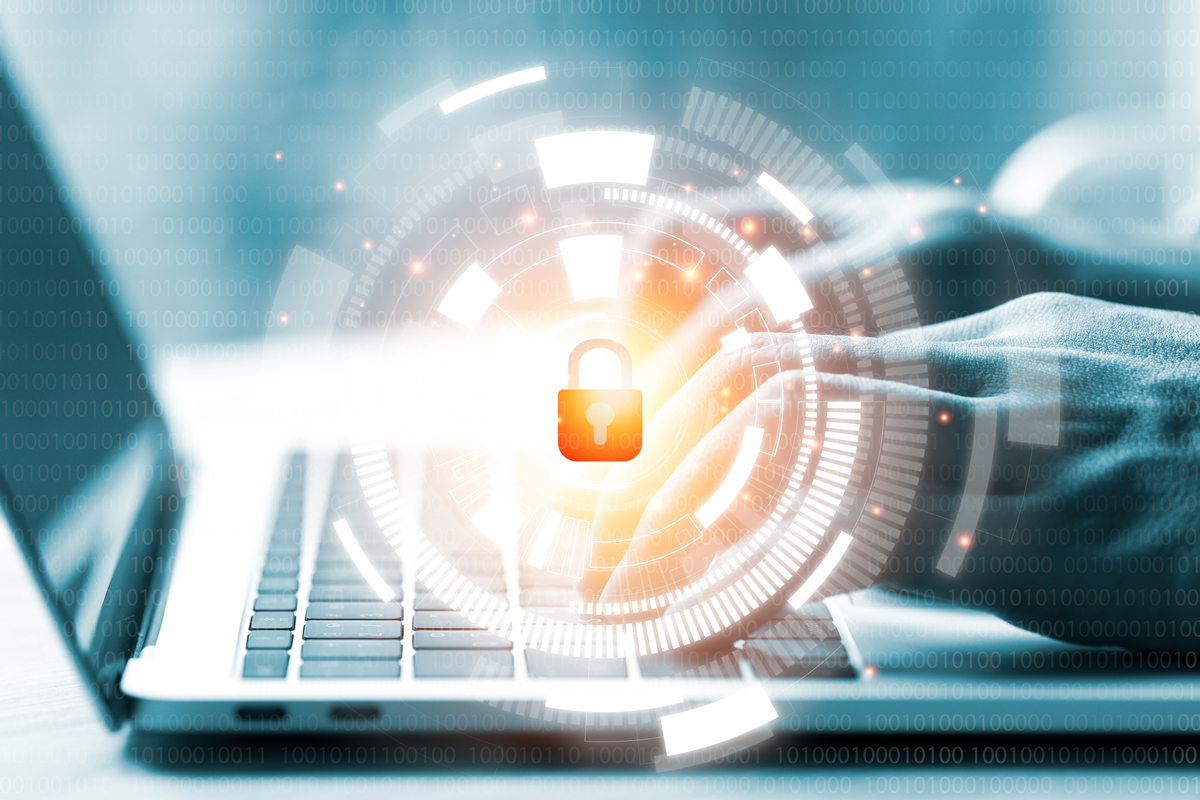Safeguarding your Data – 10 Best Practices
Safeguarding your digital data is essential to maintain your privacy and prevent it from being accessed or misused by unauthorised persons. This requires a combination of technology, common sense, and good habits.
By following these 10 best practices, you can minimise the risk of data breaches and protect your sensitive information from cybercriminals.
Here are 10 best practices for safeguarding your data:
-
Use strong passwords
You should use long, complex passwords which are at least 12 characters long, contain a combination of uppercase and lowercase letters, numbers, and symbols. You should also avoid using the same password for multiple accounts. If you follow these guidelines, it can become quite hard to remember each and every password. Password managers can help to store this information for you
-
Enable multifactor authentication
Multifactor authentication adds an extra layer of security by requiring a code in addition to a password. If the cybercriminals manage to somehow crack your password, they will still need to have access to your phone or authenticator app in order to gain access to your account. Multifactor authentication can include a pin code, password, code from an authenticator app, or a code which has been sent to your email or SMSed to you.
-
Keep software up-to-date
To stay protected against the latest threats, keep your operating system, applications, and anti-virus software up to date. Most Acronis products automatically check for updates and recommend updates when a new product build becomes available. To help protect against cyberattacks, Acronis provides advanced anti-malware and ransomware protection, as well as real-time protection and automatic backups.
-
Backup your data
Regularly backup your data to an external hard drive or cloud-based storage service to ensure that you have a copy in case of data loss. Acronis provides comprehensive backup and recovery options for both physical and virtual environments, including disk imaging, file-level backups, and full system backups. Their disaster recovery options help to recover your data in case of a disaster, with options for bare-metal restores.
-
Use encryption
Use encryption to protect sensitive data, such as financial information or personal records, from being intercepted or stolen. Acronis provides encryption for your data, helping to keep your data safe in case of theft or loss. Data is encrypted using the enterprise-grade AES-256 algorithm for Acronis at-rest storage and protected by a user-defined password, so only you have access.
-
Be cautious of public Wi-Fi
Public Wi-Fi networks are often not secure, and your data can be intercepted by hackers. Avoid using public Wi-Fi networks to access sensitive information.
-
Don’t click on suspicious links
Be wary of emails, messages, or links from unknown sources. Phishing emails account for more than 90% of attacks. These types of attacks trick you into giving away your sensitive personal information. Acronis’ Advanced Email Security, a cloud-based email security solution, blocks email threats, including spam, phishing, business email compromise (BEC), account takeover (ATO), malware, advanced persistent threats (APTs), and zero-days before they even reach your mailboxes.
-
Limit access to your data
Only share sensitive information with those who need it and have the appropriate security measures in place. Consider adjusting the privacy settings on your social media accounts and other online accounts to limit who can see your information.
-
Use a virtual private network (VPN)
A VPN encrypts your internet traffic and masks your IP address, making it difficult for hackers to intercept your data. It creates a secure connection to the internet, encrypting your data and protecting your privacy. Acronis provides a special package that includes anti-virus, a system cleaning tool, anti-malware, secure site-to-site VPN connection, and Acronis true image backup.
-
Monitor your accounts
Regularly check your bank accounts and credit reports to detect any unusual activity that could indicate identity theft. You can set up alerts and notifications with your financial institutions and online services to notify you of any activity. You can also request that your accounts need multifactor authentication to gain access.
Our Solution
Acronis Cyber Protect Cloud is a data protection and backup solution that provides a range of features to help safeguard your data from a variety of threats, including cyberattacks, disasters, and theft. With its range of features, Acronis is a powerful tool for businesses and individuals looking to protect their data.
Drop us a line if you would like to find out more about Acronis Cyber Protect Cloud and our other cybersecurity solutions which can assist in protecting your data and online presence.



